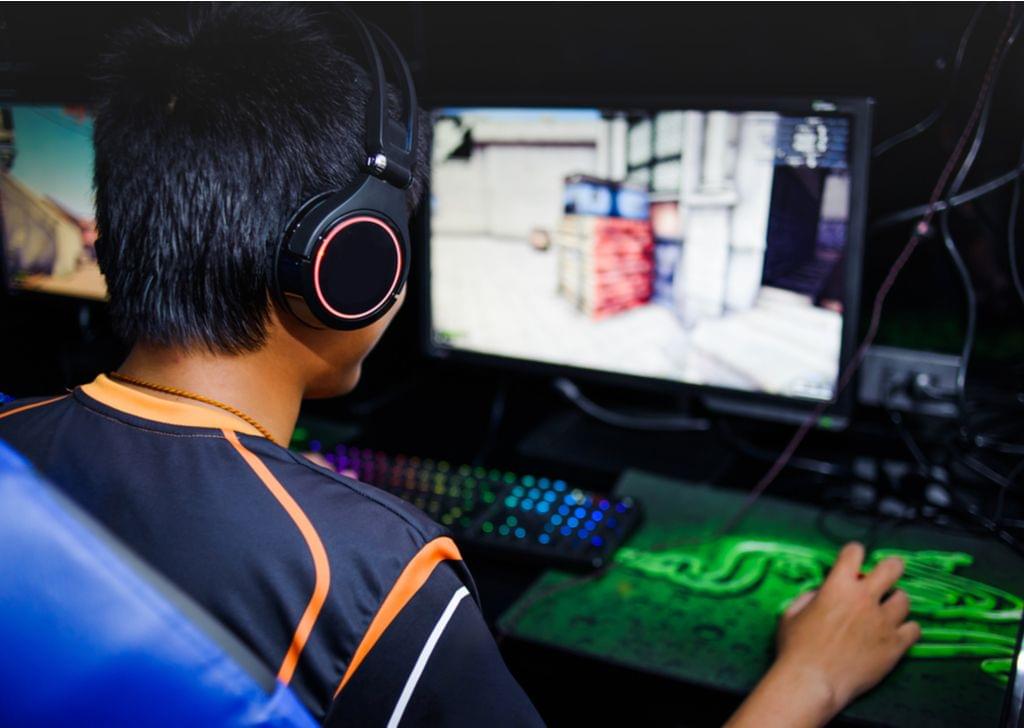

Online gaming is an integral part of the global media and entertainment market that grows drastically every year. Although this branch includes social gaming, massively multiplayer (MMO), and mobile gaming, the latter is wildly popular among kids and teens.
Mobile gaming is estimated to bring the largest proportion of total gaming revenue worldwide by 2023. We can thank at least two popular games for that.
A well-known mobile game, Candy Crush Saga, made over one billion dollars in player spending in 2018. Another game, Pokémon GO, earned over 10 million unique monthly visitors. While Candy Crush engaged kids in a challenge where they had to set and reach goals, Pokémon GO resulted in severe player injuries.
So, what is the real impact of online games on children? Should they keep playing and develop their social and logical skills or stop gaming to prevent themselves from getting into trouble?
To answer this complicated question, we need to compare the positive and negative effects of playing online games.
Table Of Contents
4 Positive Effects of Online Gaming
If parents control how much time their kids spend playing and what games they play, adults will see the good effects of online games pretty soon. Some games contribute to developing kids’ social interaction, logic, and ability to plan.
Here are the most significant benefits of video games that children play online:
- Online games encourage children to learn and take new knowledge with pleasure. What’s more, games teach kids to follow instructions, a skill they need in real life.
- Games enable kids to think creatively and look for new ways of resolving usual tasks. It’s no secret that others appreciate people who can think outside of the box. It’s especially important for kids’ future careers.
- When playing online strategy games, children learn to plan their actions and manage their resources. These games help kids think one step ahead of an opponent and carefully plan their moves to win.
- Some games involve pattern recognition, so players learn to identify those patterns. To do it effectively, kids need to improve their mental concentration. Developing this skill is extremely important for their studies.
4 Negative Effects of Online Games
Although online games have beneficial effects on children and their mental development, they can also be dangerous. It’s no secret that violent games can result in a child being nervous and aggressive. Here’s a list of the top 4 dangers of online games for children:
Here’s a list of the top 4 dangers of online games for children:
- As was noted earlier, kids who play violent online games are more predisposed to violence than their peers who don’t play those kinds of games. Fans of violent games are more likely to express aggressive feelings and bully other kids online and in reality.
- Online games can make children feel socially isolated. It’s ok when kids can balance games and life. However, it’s unacceptable when children spend all their free time on PCs or smartphones. The lack of connection with other people can result in a kid’s reduced social abilities.
- Kids who play online games and communicate with other players in chatrooms can become victims of cyberbullying. Players can send aggressive and offensive messages to others just for fun, resulting in a recipient’s depression and lower self-esteem.
- Online video game platforms are a perfect place for predators to seek victims. Kids are open to communication when they are among like-minded people. So, predators pretend to befriend kids, find out more about them and then start manipulating them. In the worst case, they can abuse children for a pretty long time until a child gets enough courage to tell their parents about being exploited.
How Do I Protect My Kids From the Negative Effect of Online Games?
When we speak about ensuring a child’s online safety, restricting games is the most obvious thing that comes to a parent’s mind. However, you need to think wisely before forbidding your kids to play their favorite online games.
As children play and communicate with each other when they play, losing access to entertainment can result in anxiety or depression. What’s more, your interpersonal relations can get worse.
If you want to protect your children but don’t want to risk your good relationships, try to understand why your kids love those games. Consider playing with them. Not only will you know more about their interests, but you will also be aware of their online activity.
If you have no time for that, here is another way out. Try monitoring your kid’s smartphone or PC activity with the help of a parental control app.
For example, mSpy software is specially designed for parents to know what their children are up to online. All you need to do is install the app on your kid’s device and monitor their activity remotely, right from your smartphone.



